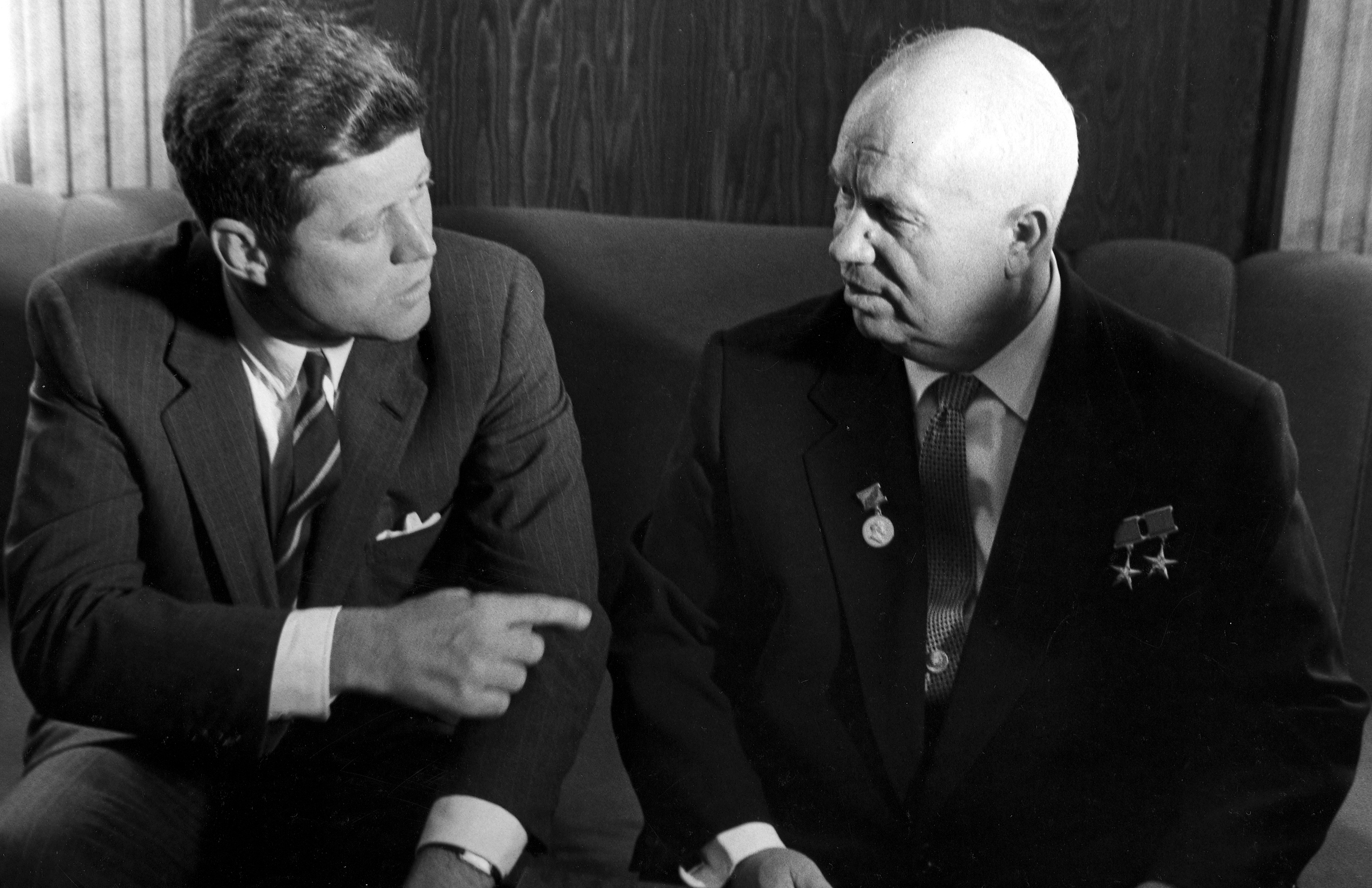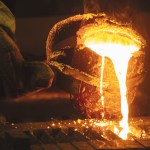ON THE BRINK
What is the sum of all fears? Given the events over the past week, it is all too easy to imagine

The world may have dodged a bullet when the Israelis – and their friends – managed to destroy hundreds of incoming missiles and drones from Iran with – incredibly – only one serious casualty. But given that the Middle East is a veritable tinderbox with the ongoing Israeli military campaign in Gaza and the apparent willingness of Israel’s enemies to carry out direct aerial attacks against that state, it is now far too easy to envision a true regional war.
Throughout the years of the Cold War, there was an underlying fear that some sort of miscalculation by the superpowers, or perhaps even a simple mechanical or electronic failure could set off a chain of events that ended up in a nuclear catastrophe. Books and films such as On the Beach, Red Alert, Fail Safe, or even more sardonically, Dr Strangelove, all capitalised on this fear.
Like millions of other students, this writer spent his elementary school years routinely participating in classroom duck-and-cover drills hiding under school desks, actions presumably designed to protect students from a horrible death in the event of a nuclear strike on the neighbouring city of Philadelphia. And then there were those Twilight Zone episodes that predicted possible versions of a nuclear holocaust.
With rigorous analysis, scholars such as Herman Kahn, Thomas Schelling, Henry Kissinger and many more scattered throughout universities, think tanks and government policy planning offices explored events that could lead to – or away from – moving up the escalatory ladder or in understandings via game theory, ultimately producing a fuller comprehension of the terror of nuclear catastrophe as well as how to manage such potential conflicts. Of course, such research and thinking focused on how to head off such events before the unthinkable actually occurred.
One outcome of these cogitations was a growing understanding between the leaders of the two superpowers – the US and the Soviet Union – of the theory of mutual assured destruction and deterrence – or MADD, probably the most appropriately named acronym ever.

US President John Kennedy and Soviet Premier Nikita Khrushchev. (Photo: JFK Library on X)
Nevertheless, in October and November 1962, at the height of the Cold War, and with overlapping crises in southeast Asia and a divided Berlin and Europe, what we now call the Cuban Missile Crisis brought the US and the then Soviet Union to the closest point in history for the use of nuclear-tipped missiles. (For background, see here and here.)
The resolution of the confrontation – and a mutual realisation that the crisis could easily have gotten out of control with unspeakable consequences – led to the first limited treaty on nuclear testing and the installation of the so-called hotline between president and premier in Washington and Moscow to facilitate communication in the midst of crises.
Escalating conflict
Relatively few analysts, however, envisioned how limited conventional weapons exchanges – or simple mistakes – could set off unpredictable but baleful consequences. Likewise, only a limited number of analyses have focused on a world where at least nine nations already have nuclear capabilities, and a generous handful of others could achieve that status quickly given their respective levels of technological nous.
That reality presents the possibility that a limited conventional conflict could escalate sharply – perhaps even including nuclear weapons. (In the past, Russian leader Vladimir Putin and some of his subordinates have even alluded to the possibility of tactical use of nuclear weapons in Russia’s current invasion of Ukraine.)
Similarly, few analyses (at least those available in unclassified formats) have looked carefully at how a “limited” conventional attack by one country upon another when they are not one of the major powers could eventually trigger massive fighting that might eventually pull in nuclear-equipped nations for actual fighting.
While this might also be without the actual exchange of nuclear weapons – it could be in large-scale, multi-faceted conventional fighting. And, of course, the threat of the use of a nuclear option would always hover over such a conflict. However, the events of this past week have now given us all an opportunity to contemplate these possibilities.
Read more in Daily Maverick: Middle East crisis news hub
In response, policymakers and national leaders should be closely exploring studies of the outbreak of World War 1 such as Barbara Tuchman’s The Guns of August, Christopher Clark’s The Sleepwalkers: How Europe went to war in 1914 or Margaret MacMillan’s The War that Ended the Peace.

The assassination of Archduke Franz Ferdinand. (Photo: Wikipedia)
Such study could help in a fuller understanding of how a relatively small but deeply emotional incident between two lesser powers – the dispute between Serbia and Austro-Hungary that exploded out of the assassination of Archduke Franz Ferdinand, the heir to the Habsburg throne, during his visit to Sarajevo in 1914 by Bosnian Serb nationalist Gavrilo Princip — can tip the world into disaster. Perhaps, too, they might choose to read Tom Clancy’s novel, The Sum of All Fears and the film made of it, despite its melodramatic quality, to help contemplate for our own time the dangerous possibilities inherent in military miscalculations.
Out of the shadows
A recent colloquy for The New York Times between Thomas Friedman, Lydia Polgreen (familiar to some South Africans as that paper’s correspondent here for some years), Carlos Lozada and Ross Douthat took place just after Iran attacked Israel with rockets, cruise missiles and drones. But it was shortly before the limited reply from Israel to that attack.
In his remarks, Friedman said: “Well, roughly a week before Iran launched its missile attack, Israel killed several very, very senior [Islamic] Revolutionary Guard commanders who were in an adjunct building to the Iranian Embassy in Damascus, meeting with operatives at the same time. And this gentleman was reportedly responsible for really running all the sort of Iranian operations in Lebanon, in Syria.
“And so, from the Israeli point of view, he was a very high-value target. I was surprised they did this. It’s not something I thought was very wise. My grandmother used to say, just one war at a time, please. And this really was a provocation, even for the ongoing shadow war between Israel and Iran, which has been ongoing now for years.
“This was definitely a step-up. And the Iranians honoured the Israelis’ step-up by taking a massive step-up of their own on Saturday by launching some 300 drones, missiles and cruise missiles at Israel from Iran, marking the first time that any Middle East state has attacked Israel since Saddam Hussein did it with Scuds 33 years ago.
“And in the context of the Israeli-Iranian conflict, again, tit-for-tat, shadow war, neither has ever done such a thing. I didn’t buy and don’t buy the notion that they were counting on Israel’s air defence system to shoot down basically all 300 with help from allies. That was actually quite a remarkable military feat. Had one of them gotten through and hit an Israeli school or a government building, this audio programme would be about full-scale war in the Middle East right now.”
Recipe for regional war
But let us imagine a slightly different, but still more terrifying outcome than the modest physical damage inflicted on Israel by that massed Iranian attack, followed by the low-level Israeli response, and presumably triggered by the earlier Israeli provocation of its killing of Iranian Revolutionary Guard leaders in Damascus. Instead of Friedman’s rumination about what might have been the case if one of the missiles had hit an Israeli school or government building, let us proffer an alternative scenario – and a more troubling one.
Of the 300 or so rockets, cruise missiles and drones fired at Israel, reports say that 99% of them were destroyed in mid-flight, before they could cause damage or casualties. Basic mathematics says the anti-missile technology employed by Israel (together with the assistance of the US, the UK, France and reportedly some Arab states) failed to destroy three or four of the incoming devices out of the hundreds fired. According to media reports, the result of the barrage was just minor damage to an Israeli air base and only one person severely injured – a young Bedouin girl who sustained life-threatening injuries.
But now make the assumption that one or two of those airborne weapons went off course from their presumed targets, or the targeting mechanisms malfunctioned, or that in the process of their being destroyed while still in the air, the destructive part of the incoming weapons fell to the ground on a trajectory different from their intended ones.
Now let us further suppose, beyond Tom Friedman’s own surmise, that the impact zones were in the close confines of the city of Jerusalem. Perhaps they struck the Dome of the Rock/Al-Aqsa Mosque/the Wailing Wall, the Church of the Sepulchre and the Israeli parliament, the Knesset, causing loss of life – and significant damage to structures revered by millions. As anybody who has visited Jerusalem (or even just looks at a map) knows, these sites are rather close to each other and they are situated largely amid homes, apartment blocks, offices, stores and educational institutions.
And to this scenario, amid the resulting chaos, Hezbollah militia units in south Lebanon then launched some of their Iranian-supplied missiles at targets in northern Israel, and even Houthi forces in Yemen sent Iranian-supplied missiles at Israel’s Red Sea port of Eilat. Given such a scenario, how would Israel respond (or the Americans)? Or how would the Saudis, Jordanians, other Islamic majority nations and yet others act in response to ensuing retaliatory actions by Israel?
Adults not in charge
It is easy enough to predict that the Israelis would respond via a serious attack on military and nuclear sites in Iran, and probably retaliatory strikes at sites in Yemen and south Lebanon as well. It might be impossible for the US to restrain such a response given the impact of those first missile hits, even if the US wished to do so.
And how far would conflict spread before the major powers could finally summon the wherewithal to rein in the ongoing carnage? And, ominously, do they actually have the ability to enforce such an end to the conflict? And, of course, the final question might be, would the Israelis contemplate the use of nuclear devices (devices they have never confirmed having) or would they keep such a possibility in reserve, but not use them — yet?
Consider that it took four years for the fever to come to an end in Europe in a war that lasted from 1914 to 1918, following a whole series of miscalculations by the European powers in the wake of the death of Archduke Franz Ferdinand. And then it largely broke out again two decades later, with even greater levels of devastation and death.
That we have not yet reached such a disaster in the Middle East due to flaws in the capabilities of those incoming missiles and the capabilities of the Iron Dome anti-missile system is something we should now be able to imagine easily enough. It seems that adults are not yet fully in charge. Again. DM




















How I love this author’s use of language! It begins with the Israeli military campaign in Gaza only .. no mention of the West Bank where over 8,000 have been detained (since Oct 7 alone !) & over 500 executed on the spot ! I thought the ‘war’ was/is against all Palestinians & the genocide (see Albanese report) not limited to Gaza? The delightful description of the “adjunct building” to the Iranian embassy takes my breath away… because it surpasses even the IDF spokespeople’s babble & makes the American spokespeople at ‘press briefings’ seem amateur. The ‘killing’ of Iranian regime leaders is a delicious way of describing the regular (monotonous by now?) assassinations on foreign soils by not just Israel but also America. This does not even the include the blatant assassination of journalists, UN workers, medical workers & other relief agencies personnel ! Missing in this ‘report’ are the public announcements by BBs allies in the knesset to drop bombs (not just the variety supplied by the US which not just flatten buildings, but ‘bunker busters’) leaving multi-meter deep craters in the earth! That doomsday about “these sites are rather close to each other & they are situated largely amid homes, apartment blocks, offices, stores & educational institutions”… did not prevented Israel from erasing them with impunity! Gaza first & now West Bank ! Mehdi Hassan has recently done a short clip of this ‘western media’ language schizophrenia. How now Brooks ?
Well said. I imagine that being American, Brooks Spector is perhaps overwhelmed – like too many of his countrypeople – by the Jewish/Zionist lobby who seem to hold sway there (and poor old Joe’s kids have married into the culture) so find it very difficult to go against the flow. And if course, there’s Netanyahu who – like Trump – is only holding on so he doesn’t have to go to jail. Sad.
Oh dear… Are you really wanting to pontificate the details when the article is trying to draw our attention to a massive and planetary-wide danger? It’s not that your points may not be valid, its just that you need to lift your gaze a bit.
But – as usual – the article IS all about the Jewish ‘details’! It’s ALWAYS about the Jews and their interests, just like the second World War is ALWAYS about the Jews – you’d think the whole thing was started because of them – just like there was only a ‘Jewish’ holocaust and the other apparently five million gays, disableds and the rest are painted out of it every time. The only danger with the Levant is that it could end up in a regional war, which would be a pity, but there you are. As someone who has just come back from a London trip for the third year in a row actually worrying about a third world war thanks to the RatPutin and can take you to the exact seat in my South East London school where I looked out towards the city in 1962 waiting for the nuclear missiles to come in and blow us to Kingdom Come, I find your typical Zionist attitude rather irritating and even offensive.